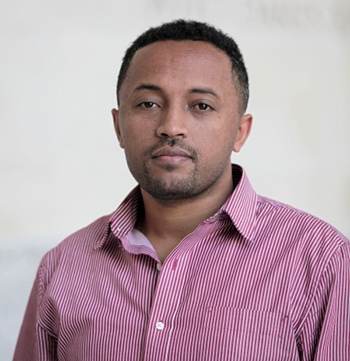Latest News Archive
Please select Category, Year, and then Month to display items
12 October 2020
|
Story Arina Engelbrecht
|
Photo Supplied
 Arina Engelbrecht from Organisational Development and Employee Well-being believes physical activity has a number of benefits for one’s health, including stress relief.
Arina Engelbrecht from Organisational Development and Employee Well-being believes physical activity has a number of benefits for one’s health, including stress relief.
Being physically active plays a big role in preventing the development of mental-health problems and in improving the quality of life of people experiencing mental-health problems.
Treatment for depression
Physical activity can be an alternative treatment for depression. It can be used as a stand-alone treatment or in combination with medication and/or psychological therapy. It promotes all kinds of changes in the brain, including neural growth, reduced inflammation, and new activity patterns are formed that promote feelings of calm and well-being. It releases endorphins – powerful chemicals in the brain that energise your spirit and make you feel good.
Physical activity can be very effective in relieving stress. Research in adults has found that physically active individuals tend to have lower stress levels compared to individuals who are less active. It also leads to improved sleep. When a person sleeps better and feels more rested, overall quality of life improves. They cope better with daily life stressors.
Reduce Alzheimer's risk
Regular physical activity can reduce your risk of developing Alzheimer's disease by up to 50%. It can also slow down further deterioration in those who have already started to develop cognitive problems. It stimulates the brain’s ability to maintain old connections as well as to make new ones.
A study asked people to rate their mood immediately after periods of physical activity (e.g. going for a walk/run, cycling, doing housework) and periods of inactivity (e.g. reading a book or watching television). Researchers found that participants felt more content, more awake, and calmer after being physically active compared to after periods of inactivity.
In conclusion, people who are physically active feel a sense of well-being, feel more energetic throughout the day, sleep better at night, have sharper memories, and feel more relaxed and positive about themselves and their lives.
“Being physically active not only changes your body, it changes your mind,
attitude, and your mood.” – Arina Engelbrecht
First UFS/AS Young African Scholar Award winner announced
2016-03-10

Fana Gebresenbet Erda, winner of the first University of the Free State /Africa Spectrum Young African Scholar Award, for his research on political economy.
Photo: Supplied |
Scholarship in African Studies still faces the challenge of capacity-building to increase ownership by authors and institutions from and on the African continent. It also requires more coordinated efforts to provide the space deserved by African authors in the international domain. In 2015, the University of the Free State (UFS) Centre for Africa Studies joined forces with Africa Spectrum (AS) in a bid to address this issue by establishing the UFS/AS Young African Scholar Award.
This award seeks to strengthen efforts to promote internationally recognised African scholarship in African Studies. One way to achieve this objective is through publishing articles by researchers based in Africa and in the diaspora in Africa Spectrum, an accredited journal compiled by the German Institute of Global and Area Studies in Hamburg.
The inaugural award winner
Fana Gebresenbet Erda, a PhD candidate in a Global and European Studies programme jointly offered by the University of Leipzig (Germany) and Addis Ababa University, wrote the winning article for 2015. He will receive a three-year affiliation to the UFS Centre for Africa Studies as a Research Fellow, along with prize money of R5 000, sponsored by the UFS.
His article, The Ethiopian Developmental State in Its Peripheral Lowlands: Large-Scale Land Acquisitions, the Politics of Dispossession and State Remaking in Gambella, Western Ethiopia, argues that development through large-scale land acquisitions in Gambella, Western Ethiopia, belies a state-remaking project under a dispossessive political economy.
Submission now open
Africa Spectrum invites scholars to submit research articles in the context of the award. In October of each year a review committee selects submissions for review. Those eligible to submit are postgraduate students nearing completion of their PhD theses and postdoctoral scholars who were awarded their PhDs no more than five years earlier at the time of the submission deadline. Those submitting should be from Africa or should be affiliated to African institutions.